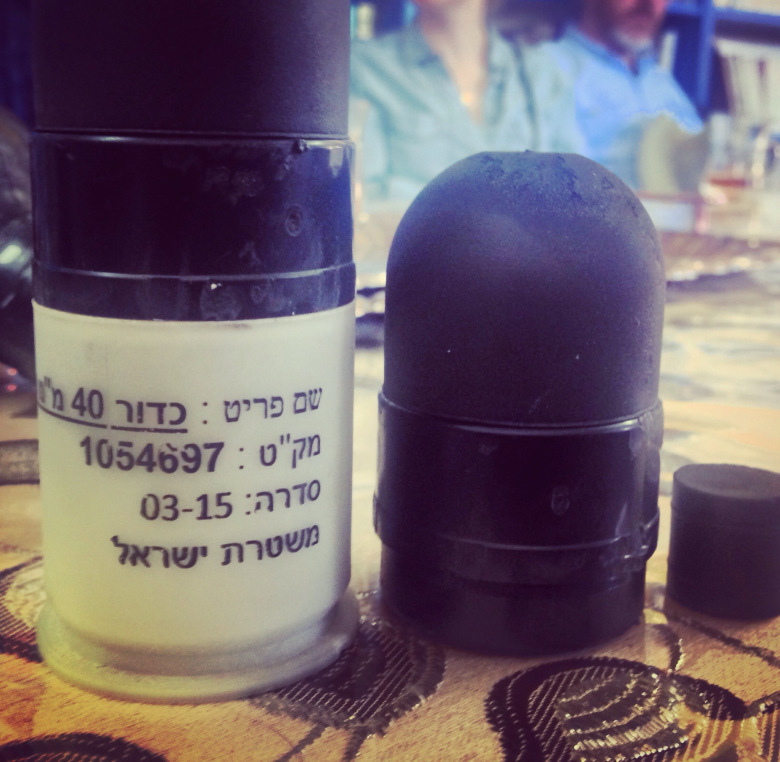Rubber Bullets
By Sarah Stern
I learned about these in the eleventh grade – Israeli rubber-coated bullets. Today, I picked one up – I had never actually seen one before. The biggest seemed much bigger than I expected, less like a bullet and more like a bath plug stamped “Israeli police.”
“One pierced just next to my right eye and shattered the bones of my socket,” our host at Aida Palestinian refugee camp tells us, holding the smallest rubber-coated bullet, “Later the doctors couldn’t reassemble my socket, so they removed a bone from my leg and used it for my eye.” He points to his hip.
When I learned about rubber bullets in eleventh grade, I didn’t know they could do this type of damage. I hadn’t heard a story like this from someone’s mouth, and examined the bumps around his eye – a Halloween mask year round.
In eleventh grade Modern Israel class at the Jewish Day School, we talked about rubber bullets as a thought experiment. How moral is Israel’s army? Do other countries temper their bullets by coating them with rubber? For many, these were rhetorical questions.
“As the bullet hit me, I can remember hearing the soldiers laughing,” Mohammad tells us. He says he’s seen soldiers taking selfies while they shoot tear gas in the camp. “They enjoy it.”
As I listen to Mohammad, I’m simultaneously hearing a different story. Robi Damelin, a Jewish member of the Bereaved Parents Circle, lost her son during his Israeli army service, when he was killed by a Palestinian sniper.
“You don’t know who is behind the uniform,” she emphasizes every time she tells the story. Her son didn’t want to serve at checkpoints, but decided he could do so only if he set an example of graciousness and morality for his fellow soldiers.
Robi’s words recall how I felt for classmates from my American Jewish high school who graduated and went on to the Israeli military – there were a good handful of them. They were good people. They would be moral. They would be a light.
The problem isn’t them – it’s that the military occupation here is very dark.
In the past weeks, Israelis have been closely following the case of a soldier in Hebron. The soldier shot and killed a Palestinian who attempted a knife attack. When the soldier fired this lethal shot, the man was already lying immobile on the ground, having been neutralized.
Much like the conversation that my eleventh grade class had about rubber bullets, Israel’s concern over this incident focused on the morality of the army. What was the soldier’s intent? Can we sympathize with his fear? Was he a bad apple?
How can we rubber-coat his bullets?
We don’t know who is behind the uniform. Robi’s son and the soldier from Hebron both wear IDF olive green. What concerns me more than the morality of the army, is Israeli comfort with having young people in uniform, risking themselves in the name of occupation, controlling other people’s lives and deaths, seemingly indefinitely. There is no way to be moral in such a situation – because you can’t rubber-coat endless occupation.

